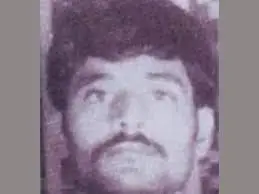Devuji or Sonu: Who will head the Maoists now that Basavaraju is dead?

The death of Nambala Keshava Rao, better known as Basavaraju, marks a major turning point in the history of the Communist Party of India (Maoist). As the general secretary and top strategist, he played a central role in guiding the group’s ideology and military actions. His death during a security operation in Chhattisgarh in May 2025 has left the Maoist outfit without a clear leader for the first time in decades.
Now, the group faces a leadership vacuum. Two names have emerged as possible successors — Devuji and Sonu. Both are from Telangana and have long-standing ties to the movement. But who among them is ready to take charge during this turbulent phase?
The Legacy of Basavaraju
Basavaraju came from Andhra Pradesh and had been part of the Maoist struggle for over 40 years. He was known for his sharp intellect and effective guerrilla strategies. In 2018, he became the general secretary after the previous leader, Ganapathy, stepped down.
During his time at the helm, the CPI (Maoist) expanded its operations in Chhattisgarh, Jharkhand, Odisha, and Maharashtra. He focused on strengthening armed wings and tightening internal discipline. His leadership helped the group stay organized despite growing pressure from the state.
However, his sudden death has left the movement without direction. The organization now finds itself at a critical crossroads.
Devuji vs. Sonu: Who Will Step Up?
With no official announcement yet, attention has turned to two senior leaders — Devuji and Sonu.
Devuji: The Thinker
Devuji is a senior ideologue and a long-time member of the Maoist central committee. His supporters believe his deep understanding of Marxist theory and strong commitment to the movement make him the ideal successor.
They argue that ideology must guide any revival of the movement. Devuji has reportedly played a key role in policy formulation and internal education. However, critics say he lacks hands-on military experience. That could be a major drawback at a time when field strategy is crucial.
Sonu: The Fighter
Sonu comes from a military background within the group. He has led several ambushes and operations, particularly in the Dandakaranya region. His leadership on the battlefield has earned him support from younger cadres and local units.
Supporters say Sonu can inspire ground-level fighters and rebuild confidence within the ranks. However, some senior leaders view him as too focused on armed tactics. They worry that he may not uphold the ideological principles that define the CPI (Maoist).
A Divided Movement
The leadership vacuum has exposed internal fault lines. There is growing tension between the ideological faction, which wants to return to the movement’s political roots, and the militant wing, which favors continued armed struggle.
Without a strong leader to unite the group, these differences may deepen. There are also concerns about morale. With Basavaraju gone, many cadres may feel disillusioned and consider surrendering. Security agencies have already reported an increase in desertions.
This internal confusion could seriously weaken the movement. It also raises the stakes for whoever takes over next.
Government Strategy and Security Gains
For Indian authorities, Basavaraju’s death is a major breakthrough. Security agencies believe this is the best chance to weaken the Maoists further. Without strong leadership, the group may struggle to coordinate attacks or recruit new members.
The government is now focusing on encouraging more surrenders. Psychological campaigns are also being used to highlight the group’s disarray. Officials believe this is the best time to target remaining top commanders.
What Happens Next?
The CPI (Maoist) is at a critical moment. Whoever becomes the next leader will face enormous challenges. The movement has lost much of its earlier momentum. Security forces are stronger than ever, and public support for Maoist ideology has waned.
If Devuji takes charge, the group may try to regroup ideologically. If Sonu rises, the focus may remain on armed struggle. Either way, the group’s future will depend on how well the new leader can inspire and organize under intense pressure.
For now, the CPI (Maoist) remains in limbo. The coming weeks will decide whether the group fades further or finds a new path forward.






